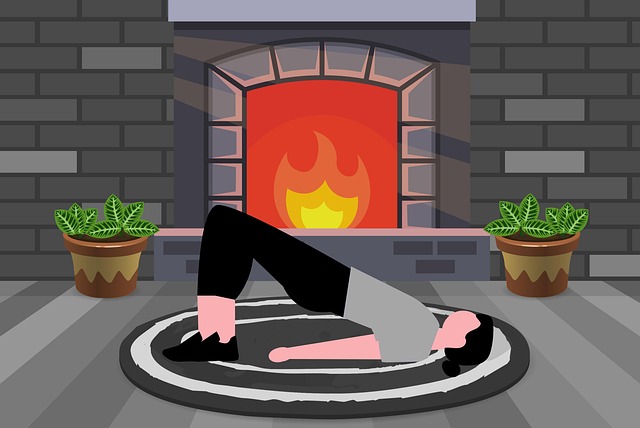Emotional resilience is cultivated through targeted therapies such as CBT, mindfulness therapy, integrative wellness therapy, art therapy, yoga therapy, and meditation. These approaches equip individuals with self-awareness, healthy coping mechanisms, and flexibility in navigating challenges, enhancing holistic wellness. By addressing deep-rooted issues and promoting present-moment awareness, these therapeutic interventions foster emotional healing and enable individuals to face life's ups and downs with grace and resilience. Mindfulness therapy, a powerful tool within integrative wellness, encourages judgment-free connection with thoughts and emotions, leading to improved stress management, emotional healing, and overall well-being.
Emotional resilience is a powerful tool for navigating life’s challenges. In today’s fast-paced world, targeted therapy plays a pivotal role in building this inner strength. This article explores the benefits of enhancing emotional resilience and delves into various therapeutic approaches designed for holistic wellness. From mindfulness therapy to art therapy for healing, cognitive-behavioral therapy, integrative wellness therapy, yoga therapy, and meditation for holistic wellness, we uncover practical steps to incorporate these techniques, fostering emotional healing and somatic therapy for a more balanced life.
- Understanding Emotional Resilience and Its Benefits
- The Role of Targeted Therapy in Building Resilience
- Exploring Different Therapies for Holistic Wellness
- – Mindfulness Therapy
Understanding Emotional Resilience and Its Benefits

Emotional resilience is the ability to adapt and bounce back from life’s challenges, stress, and adversity while maintaining a sense of hope and well-being. It involves managing intense emotions, navigating difficult situations with flexibility, and finding healthy ways to cope. Building emotional resilience through targeted therapy offers numerous benefits for holistic wellness.
Therapies such as cognitive-behavioral therapy (CBT), mindfulness therapy, integrative wellness therapy, art therapy for healing, yoga therapy, meditation for holistic wellness, emotional healing therapy, and somatic therapy provide effective tools to enhance resilience. These therapeutic approaches help individuals develop self-awareness, reframe negative thinking patterns, cultivate healthy coping mechanisms, and strengthen their ability to navigate life’s ups and downs with grace and resilience.
The Role of Targeted Therapy in Building Resilience

Targeted therapy plays a pivotal role in building emotional resilience by addressing deep-rooted issues and providing effective coping mechanisms. This holistic approach integrates various therapeutic modalities like cognitive-behavioral therapy (CBT), mindfulness therapy, and art therapy for healing. CBT helps individuals identify and challenge negative thought patterns, while mindfulness therapy promotes present-moment awareness to reduce anxiety and stress. Integrative wellness therapy combines these evidence-based practices with yoga therapy and meditation for holistic wellness, enabling people to cultivate emotional balance and strength.
Somatic therapy, focusing on the mind-body connection, is another powerful tool within targeted therapy. By engaging in somatic practices, individuals can release stored trauma and emotions, fostering a deeper sense of self-awareness and resilience. Art therapy for healing allows people to express themselves creatively, providing an alternative outlet for emotional processing. These therapeutic interventions work synergistically to create a supportive environment where individuals can explore their emotions, gain insights, and develop sustainable strategies for navigating life’s challenges, ultimately enhancing their overall emotional healing and wellness.
Exploring Different Therapies for Holistic Wellness

In the pursuit of holistic wellness, exploring diverse therapeutic approaches can be transformative. Therapy for holistic wellness goes beyond addressing symptoms by focusing on an individual’s emotional, mental, and physical well-being. Integrative wellness therapy often incorporates techniques such as cognitive-behavioral therapy (CBT), renowned for its effectiveness in managing anxiety and depression by challenging negative thought patterns. Additionally, mindfulness therapy equips individuals with tools to stay present, reducing stress and fostering emotional resilience.
Art therapy for healing and yoga therapy are other innovative methods gaining traction. Art therapy encourages self-expression and reflection through creative mediums, facilitating emotional healing. Yoga therapy combines physical postures, breathwork, and meditation, promoting mental clarity and body awareness. Somatic therapy delves into the connection between the mind and body, addressing deeper emotional patterns through sensory experiences. Even meditation for holistic wellness plays a crucial role in calming the mind and cultivating a sense of inner peace.
– Mindfulness Therapy

Mindfulness Therapy is a powerful tool within the realm of integrative wellness therapy, focusing on training individuals to be fully present and engaged in their daily lives. This holistic approach, often incorporated into cognitive-behavioral therapy (CBT) and art therapy for healing, encourages a deeper connection with one’s thoughts and emotions without judgment. By fostering mindfulness, individuals can develop emotional resilience, enabling them to navigate life’s challenges more effectively.
Practices such as meditation for holistic wellness, yoga therapy, and somatic therapy are integral components of mindfulness therapy. These techniques help individuals become more aware of their bodily sensations and emotional states, promoting a sense of calm and equanimity. Such awareness is essential for recognizing and managing stress and anxiety, leading to improved emotional healing and overall well-being.
Emotional resilience is a vital component of overall well-being, and targeted therapy plays a crucial role in fostering this quality. By incorporating diverse therapeutic approaches such as mindfulness therapy, cognitive-behavioral therapy, art therapy, yoga therapy, meditation, and somatic therapy, individuals can navigate life’s challenges with greater equanimity. Integrative wellness therapy offers a holistic approach to emotional healing, addressing the mind, body, and spirit connection. Through these therapeutic methods, one can develop coping mechanisms, enhance self-awareness, and cultivate emotional strength, ultimately leading to improved mental health and enhanced resilience in daily life.
